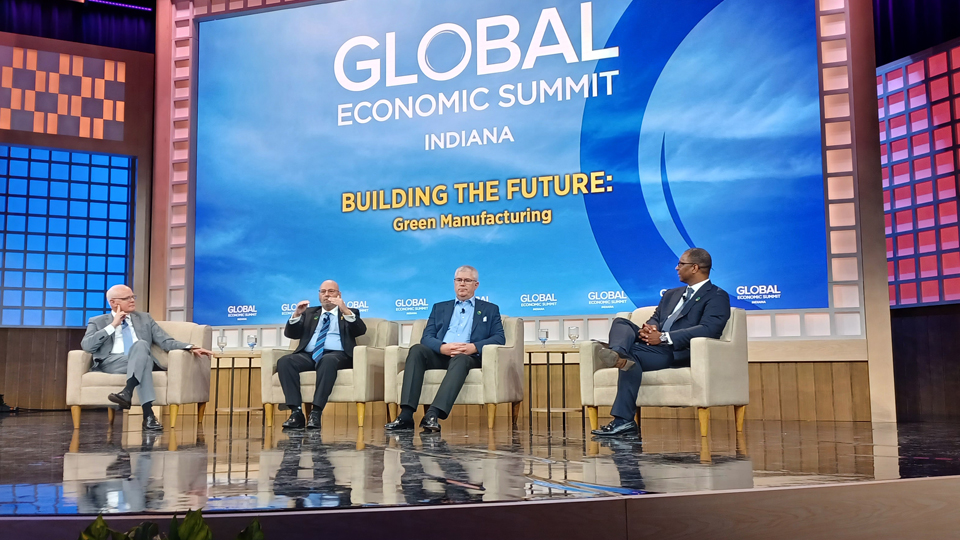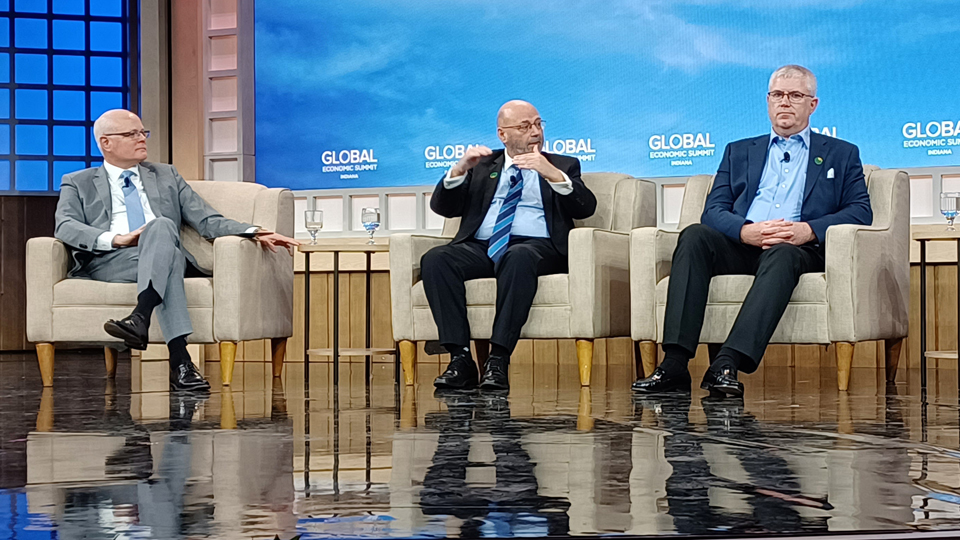Summit Panel: Role of Green Manufacturing
Subscriber Benefit
As a subscriber you can listen to articles at work, in the car, or while you work out. Subscribe Now
Rolls-Royce North America Chairman and Chief Executive Officer Tom Bell believes companies are generally embracing the idea of green manufacturing, reducing their carbon footprint, and adopting sustainability goals. However, Bell says there is a distinction between those that are giving “lip service because it’s the acceptable, expected thing to do,” and those that are really investing in it.
Bell took part in a panel discussion during the Indiana Global Economic Summit Friday morning which examined the future of green manufacturing.
“Rolls Royce has [a goal] of 30% of our revenue by 2030 in net zero businesses. That’s an audacious goal,” explained Bell, who also said 75% of Rolls-Royces’ research development between zero or lowest carbon pilot technologies within two years.
“That’s walking the talk. And that’s the things that I’m very proud of about Rolls Royce and really leaning into transforming our business to be that business,” said Bell.
The panel also included Arthur Sinodinos, who serves as Australian Ambassador to the U.S. and Alfred Poor, chief executive officer of New York-based Ideanomics Inc.(Nasdaq: IDEX), a global electric vehicle company that is focused on driving the adoption of commercial electric vehicles and associated sustainable energy consumption.
“Most people have got good intentions. Many of them don’t know where to start,” said Poor. “But we shouldn’t bash the folks that are struggling to get there. Because we see this in the automotive industry.”

Poor says it is not enough for companies to establish, implement and attain Environmental, Social, and Governance (ESG) criteria in their decarbonization efforts.
“Companies like ours can start to disclose how we unpacked some of the locks on some of those challenges. That when we do that, that opens up information to the broader commercial community to be able to help solve some of these issues, because these are tough challenges,” said Poor.
The panelists were in agreement that the transition to green manufacturing requires public-private partnerships, where government can create a framework, but it takes private investment and corporate know-how to reach goals.
“Government will play its role and it’ll help industry will help incentivize industry with new technology development. [But] It takes time. There has to be a transition,” said Sinodinos. “They need the tools. They need to have some sort of guidance as to what is possible, and not to be told you’ve just got to change overnight.”
Bell says there are challenges ahead. To overcome those challenges will require “good dialogue” between the governments and the industries.
“A good understanding about how fast we can go and how we make sure that the world keeps turning. With that sense of purpose,” said Bell.
